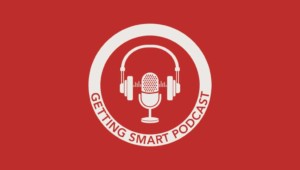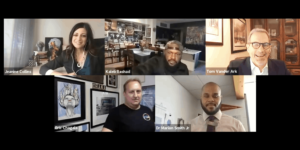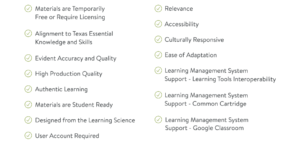Mike Smith's OER List
While Education Director at Hewlett Foundation, Mike Smith did more to advance open education resources (OER) than anyone on the planet. Here’s a quick list of open content resource recommendations from him:
ISKME managed OER Commons – great resource materials; lots of free textbooks, and a full list of OER providers.
Curriki has lots of full courses and other materials.
FREE.edu.gov government open portal since 1997 drawing from all across US government teaching and learning resources from federal agencies. See NASA, Library of Congress, Smithsonian.
PHET: Hundreds of Terrific science simulations — created by Noble prize winner in Physics Carl Weiman phet.colorado.edu
Hippocampus: Great homework and course site for secondary school — 20 or so core courses.
Khan Academy — almost 2000 terrific videos. Possible to put together strings of videos to make courses — some folks have put the courses together — see curriki.
NSDL is the Nation’s online library for education and research in Science, Technology, Engineering, Mathematics Some courses — tons of materials.
Open High School, David Wiley’s school in UTAH, open materials for freshman and sophmore years.
MIT Open Courseware: lots of courseware, some of videos that could be used as college courses and Calculus Revisited a series of videos and related resources that covers the materials normally found in a freshman-level introductory calculus course. The series was first released in 1970 as a way for people to review the essentials of calculus. It is equally valuable for students who are learning calculus for the first time.
OCW-C consortium of 170 universities all over the world with open courseware; lots of materials.
Carnegie Mellon Open Learning Initiative (OLI): 10 Courses –cognitive design.
Connexions: online platform for managing and sharing of open course modules and open courses.
List of 100 Best Open Resources on the Web, List of key resources; some overlap with others on the list.
Vijay’s Open Fiction blog and OER blogs
Archive of OER and OER infokit.
Learning Resource Exchange: The Learning Resource Exchange (LRE) from European Schoolnet (EUN) is a service that enables schools to find educational content from many different countries and providers http://lreforschools.eun.org. It includes content from Ministries of Education (MoE) and other partners that have participated with European Schoolnet (EUN) in EC-funded projects such as CALIBRATE and MELT projects and is now being carried forward in current projects such as ASPECT and eQNet and with support from the LRE’s 25 content partners.
OpenLearn from Open University: Huge library of powerful materials.
OER Africa; AVOIR: African Virtual Open Initiatives and Resources; and TESSA: Teacher education materials in Sub-Saharan Africa.
Revolution: a searchable database of free textbooks.
GlobalText project (aims to create a free library of 1,000 electronic textbooks for students in the developing world.
Open Knowledge Network: promotes collection and sharing of local knowledge by using flexible technical solutions; operates in Africa, South Asia and Latin America.
MathWorld: an extensive free mathematics resource, but no CC license.
GLOBE: Global Learning Objects Brokered Exchange (a collaboration of Ariadne, Education.au, eduSource Canada, MERLOT and NIME.
Global SchoolNet Foundation: promotes international cooperation in problem/project-based learning.
Commonwealth of Learning — University for Small States in the Commonwealth.
European vision of OER and UK directory of OER repositories.
Peter Suber’s Open Access Overview.
Directory of open access journals
Community College Consortium for Open Educational Resources: http://oerconsortium.or and http://collegeopentextbooks.org, over 500 open textbooks primarily focused on the high-enrollment General Education classes at community colleges; also includes peer reviews (100 at this time) and accessibility reviews for the open textbooks at the site and lots of other resources for faculty and students interested in open educational resources.
And, finally, there is lots of video courses on iTunes and YouTube.








0 Comments
Leave a Comment
Your email address will not be published. All fields are required.